
How to Maintain Good Hand Hygiene (Step-by-Step Guide)
Hand hygiene is one of the simplest yet most powerful habits we can adopt to protect ourselves and those around us from illness. Every day, our hands come into contact
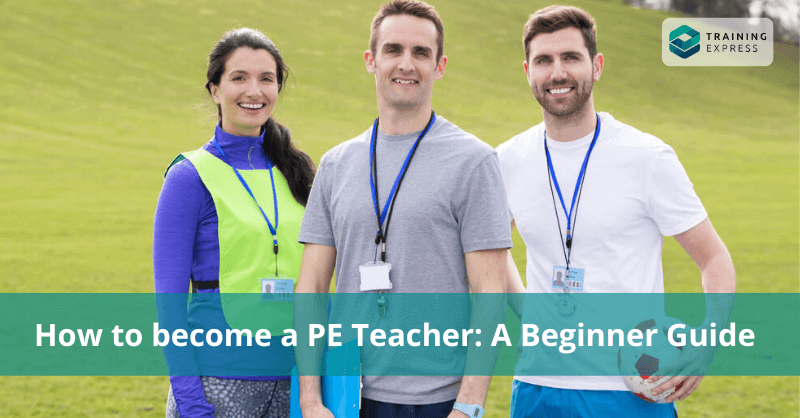
PE teachers specialise in different educational fields and work with students of all ages. PE teachers instruct students in healthy habits, nutrition and physical activity. So, how to become a PE teacher? Becoming a PE teacher can be an excellent option to consider in education. PE teachers get to work with children in an active setting.
This article will talk in detail about becoming a PE instructor in the UK. So, let’s find out.
PE teachers instruct, evaluate and assess students in areas of physical health and development. Exercise, health science, and nutrition are given equal importance as well. PE teachers can use instructional strategies to plan, develop and deliver lessons in the classroom. As a PE teacher, you might have a variety of tasks depending on the grade and age levels.
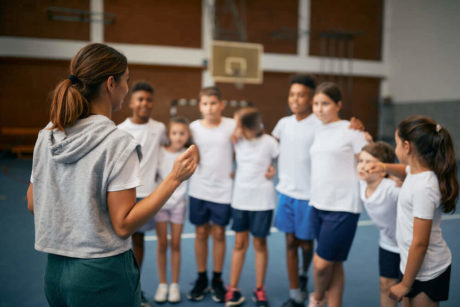
Some of the tasks may include,
PE teachers have to complete the same education and training as teachers in general education. Additionally, PE teachers must complete specialised training in lifespan development, health science, and kinesthetic development. So, let’s find out how to become a PE teacher with more details.
You have to complete your undergraduate degree to become a prospective PE teacher. Many PE teachers opt for a bachelor of Arts in Education. You can also specialise in health sciences, physical education, or kinesiology. Most of these educational programmes cover topics like sports pedagogy theories and physical education theories. PE teachers should also have an idea about team sports and foundational methods of instruction. If you wish to change careers or specialise in teaching particular subjects, you have more training alternatives. Additionally, to become a primary or intermediate PE teacher, you need broader knowledge of Sports First Aid. The course teaches you how to assess a patient’s condition and perform life-saving procedures. You might also need 4 to 5 GCSE’s including English and Maths as a part of the entry requirement. For primary school teaching, GCSE science in grade 9 to 4 will be necessary.
Earn Your Bachelor’s Degree
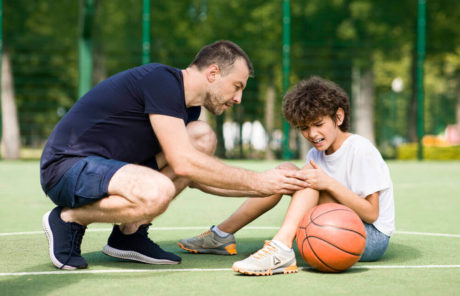
Most of the bachelor’s programs for PE will require you to get an internship afterwards. You can usually get an internship as part of your coursework. Your internship may last for a single semester. And the length of your internship will depend on the type of program you attend.
You may not want to pursue a bachelor’s degree to become a PE teacher. In that case, a school direct route is the way to go. School-led courses are another great option for obtaining your QTS and becoming a qualified PE teacher. They provide a hands-on approach to training by immersing you in the realm of what your future job may entail.
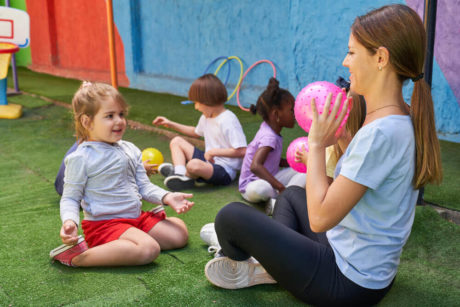
As you learn on the job, you may find yourself working in two schools. The courses typically take a year and provide the equivalent of a postgraduate qualification. The most significant advantage of training in this manner is that you will have time to work in a single school once completely trained.
Also, programs may pay your tuition, and there are some paid choices, particularly if you already have a degree and three years of job experience. The School Centred Initial Teacher Training Consortium (SCITT) or those with close affiliations to a university conduct the programs.
Working with young people and gaining experience is good, although it is not a must. This can be accomplished by volunteering or paid employment at a school, coaching at a sports club, or youth work. However, teaching in a British state school may require a QTS.
In order to be a PE teacher, you will have to take several certification exams. You can usually take these exams after getting your bachelor’s degree. This would help you get the teacher’s certificate. In addition, PE teachers may complete exams in different subject areas.
The certification examinations you complete to become a PE teacher indicate your eligibility. It will help you to acquire both your state teaching certificate and your physical education endorsement. Since you’re focusing on physical education, you must earn this endorsement. And that is in addition to your teaching license.
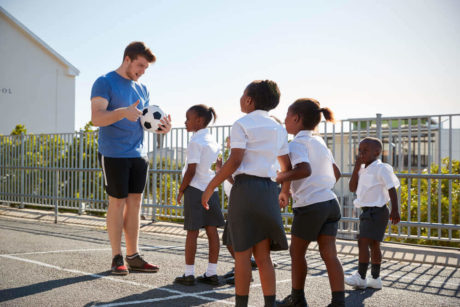
You must also renew your teaching license and PE endorsement every few years. Teachers’ credentials are typically renewed every three to five years. And you might have to complete continuing education to recertify. However, the specific requirements for recertification vary from city to city.
Before changing occupations to become a PE instructor, it is a good idea to be physically fit. You may also need to pursue more schooling to improve your physical education abilities. You may enrol in training programs that will guide and teach you all you need to know to become a fully trained teacher.
Some programs provide training in a wide range of areas, including the business and personal elements of teaching. They can also coach their trainees and provide internships to ensure that they are prepared to work with kids after the program is over.
Aspiring physical education teachers benefit from physical fitness, team sports experience, and strong interpersonal and communication skills. PE teachers should be excellent communicators and patiently deal with students. Engaging instructors are also respectful of their students’ boundaries.
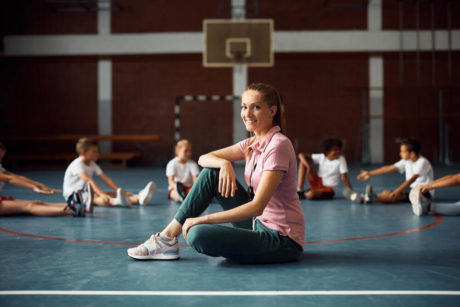
Team dynamics, kinesiology, and nutrition knowledge can assist new physical education instructors in obtaining work. A physical education teacher’s purpose is to encourage physical fitness. PE teachers also educate children on the importance of good health and dietary habits. As role models for their pupils, competent PE teachers should exhibit all aspects of good health and fitness. Physical education instructors motivate their pupils to live active, healthy lives.
There is a suitable demand for PE teachers with exceptional ability and knowledge of health and nutrition. Several questions can come forward when you’re new to career research. Some of the frequently asked questions about PE teachers can further give you insights into what this career path looks like. Let’s take a look at some of the questions below.
PE teachers divide their time between the classroom and the outdoors. PE teachers frequently focus in the classroom on health sciences, nutrition, and the intellectual components of physical exercise and movement.

PE instructors usually get paid the same as other teachers in an institution. According National Careers Service PE teachers can make between £25,714 to £41,604 per annum. However, your income will vary depending on a lot of factors. One of the important factors affecting your income potential is the number of years you have been working in education. Usually, first-year teachers and educators just entering their careers earn less than veterans.
In addition, your degree level can also affect your income level. PE teachers with graduate degrees tend to earn more than teachers with undergraduate degrees.
Another factor that influences a PE teacher’s income level is the city or province they are living in. Some cities pay PE teachers more than others. Affecting factors also include the grade level you teach. As you might know, PE instructors in secondary education tend to have higher incomes.
PE teachers can advance into positions of seniority within the educational institution after garnering work experience. You must have exceptional performance and a good track record to reach seniority. Some of the career progression for PE teachers include education specialist, curriculum leader, head of the department, deputy head or headteacher.
You can also move to another career within the sports industry if you’d like. In that case, the skills and experience you accumulated as a PE teacher will come in very handy. For example, you could work with school sports partnerships. You could also apply your experience and become a coach or work in sports development.
Fitness and postsecondary recreation instructors perform some tasks that are similar to the work that physical education teachers do. For example, these instructors create lesson plans and assign work to students and evaluate their work. Their area of instruction mostly focuses on recreation, leisure and fitness studies. However, fitness instructors typically need a bachelor’s or master’s degree, depending on the desired qualification.
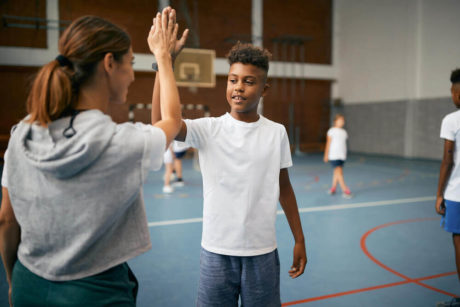
PE teachers perform some of the same tasks as high school, middle or elementary school teachers. However. School teachers also lead classes, assess students’ performance and meet with the parents as needed.
Additionally, being an elementary school teacher could be a good alternative. Elementary instructors may teach a variety of courses at one grade level. In contrast, middle and high school teachers may teach one or two subjects at many grade levels. Teachers at all levels, like physical education teachers, must have a bachelor’s degree and a teaching license.
PE instructors can pursue extra physical education courses and certifications. For example, graduate degrees in physical education, kinesiology, health science, or nutrition are earned by some PE teachers. Similarly, you can seek physical education for kids with special needs certification. And that is a distinct endorsement of your physical education credential.
A full-time physical education instructor is likely to teach numerous classes every day, which might vary greatly depending on the location and age range. In addition, it may entail teaching and coaching various sports, especially at the secondary level, in a range of locations. For example, locations may include a playground, sports hall, sports field, swimming pool, or gymnasium.
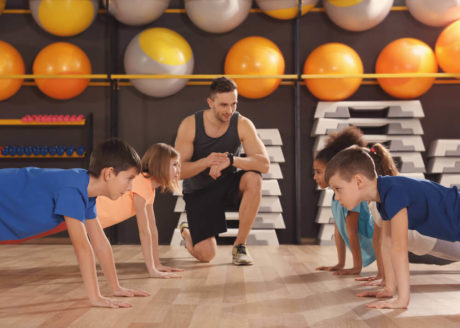
Moreover, the degree of physical exertion required on your side may vary from lesson to session. For example, PE course for Primary school, particularly for younger students, is quite immersing. And you would need to perform everything you wanted the children to accomplish. That means from star jumps and on-the-spot sprinting to tossing and catching, you have to teach them all.
Some secondary-level sessions may be more supervisory. So you may not need to show the same intensity levels. For instance, secondary PE teachers can provide swimming instruction from the poolside for each class.
If you choose to teach at the secondary level, you may need more in-depth knowledge of a variety of sports. For instance, football, rugby, netball, basketball, hockey, athletics, and swimming, among others. However, at the primary level, it may be more about finding fun ways to get children active. Your goal is to get them interested in exercise and sports rather than teaching specific sports in depth.
One PE teacher in the school can only take responsibility for part of each class level. Besides, depending on the level of class you teach, your qualifications and duties will be different. And that is why different levels of a school will have different designated PE teachers most times.
Let’s take a detailed look at the levels of education and what it means for a PE teacher.
This level refers to physical education teachers who coach and supervise students between the ages of 4 and 11. They are primarily concerned with keeping the children healthy and fit.
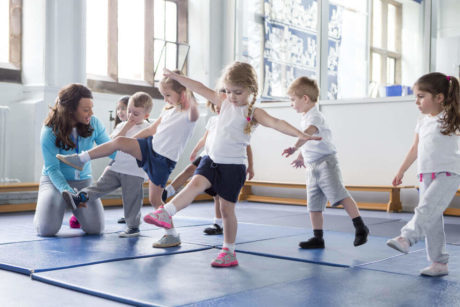
This group of PE teachers works with kids aged 11 to 16. Their education enables them to comprehend how pupils at that level develop academically, socially, and mentally. The physical education provided by this level of PE teachers focuses mostly on exercise, healthy behaviours, and individual and team sports such as volleyball and football.
A secondary school PE instructor should understand teenage psychology and be able to relate to the age group. Secondary school students’ PE curriculum may include motor skills, movement patterns, personal and social development, physical development, physical exercise, and fitness.
Postsecondary PE instructors work at a variety of institutions and universities. They work with students over the age of 18 who are interested in studying physical education and other related areas such as nutrition, science-based health programs, physiology, and athletics.
At this level, PE teachers can focus on educating future PE teachers as well as professional growth. They can also mentor students interested in majoring in physical education and working as private physical trainers or sports medicine professionals, among other relevant fields.
PE teaching is an extremely satisfying and valuable vocation. You may enjoy your passion for sports and fitness while also sharing your knowledge and abilities, assisting young people in developing their confidence and talents, and making a significant contribution to the families in your community.
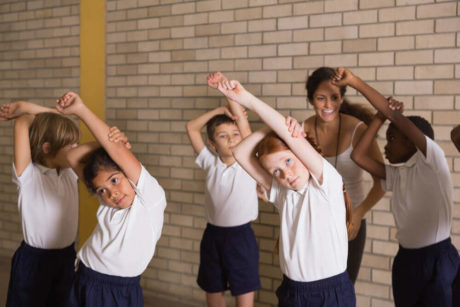
However, in order to become a qualified teacher in the United Kingdom, you must first have a university degree or its equivalent. Many people who want to be PE instructors may only be able to do so if they have time, prior credentials, or money. Anyone who wants to be a physical education teacher should be able to do so, which is why new legislation and creative programs and courses have been brought into teacher education.
With plenty of relevant experience and a recognised certification in the field of sports education, obtaining a QTS will put you in the best possible position. You’ll have laid a solid foundation that will propel your growth and significantly increase your chances of becoming a certified physical education teacher.

Hand hygiene is one of the simplest yet most powerful habits we can adopt to protect ourselves and those around us from illness. Every day, our hands come into contact
![Are Online Courses Worth Doing [Pros & Cons]](https://trainingexpress.org.uk/wp-content/uploads/2025/08/Are-Online-Courses-Worth-Doing-Pros-Cons-460x288.webp)
Since the COVID-19 pandemic reshaped our way of living, one thing became undeniably clear—education doesn’t have to happen in a classroom. From 2020 onwards, online courses saw an unprecedented boom

Who Led The Inquiry: Sir Michael Bichard. Local authority: Cambridge The tragic case of Holly Wells and Jessica Chapman, often remembered as the Soham murders, remains one of the most shocking

Empowerment, in its most basic sense, means giving people the tools, knowledge, and confidence to take control of their own lives. It’s not about someone else making all the decisions

When it comes to mental health, there’s no one-size-fits-all approach. While some people benefit from medication, others find relief through talking therapies or often, a combination of both. With around
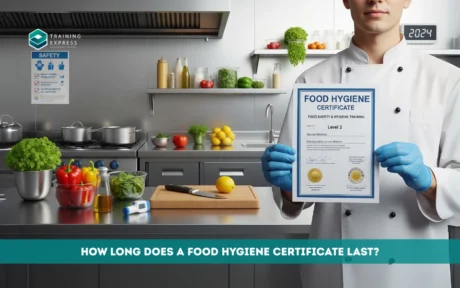
All three level food hygiene certificates do not legally expire, but it is strongly recommended that you renew it every three years to ensure your knowledge stays current with evolving

No more than 50 active courses at any one time. Membership renews after 12 months. Cancel anytime from your account. Certain courses are not included. Can't be used in conjunction with any other offer.